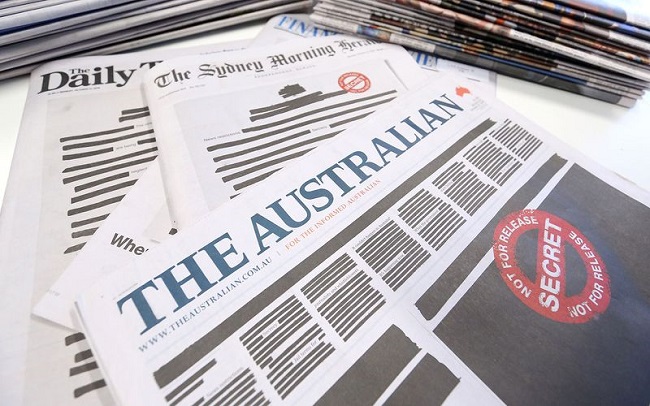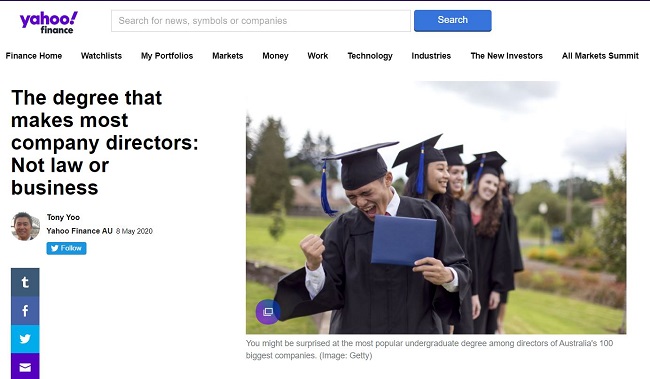by Jasmine Hogg
October 29, 2019
Reputation Management
“We can afford to lose money – even a lot of money. But we can’t afford to lose reputation – even a shred of reputation.”
When Warren Buffet sent that memo to employees at Berkshire Hathaway in 2014, he urged them to zealously guard what he has always regarded as a cornerstone of company value – reputation.
It’s a message he’s been hammering for more than 25 years and the multinational conglomerate he Chairs appears to be walking the walk. Berkshire Hathaway is yet again a star performer on Fortune’s list of most admired companies – sitting at third behind Apple and Amazon.
We know that reputational damage has the potential to decimate a company’s market value.
According to a study by World Economics, on average 25% of a company’s market value is directly attributable to reputation.
Examples of reputation-induced market damage are painfully fresh.
AMP’s share price nosedived during the Hayne Royal Commission and has continued to decline. At the time of writing this article it was around 25% down on the start of year and more than 60% lower than the start of 2018.
Do you remember the United Airlines reputation crisis after they violently ejected an innocent customer from their plane? The footage was shared online and they lost $1.4 billion in market value in a single day.
It’s not a matter of if a company will face a crisis that impacts its reputation but when.
In Deloitte’s global 2016 Crisis of Confidence survey more than half of businesses surveyed (53%) had experienced a crisis in the past five years. Seventy per cent of board members said it took their organisations up to three years to recover their reputations from a crisis. Sixteen per cent said it took four years or more.
But, here’s the sting. Although boards rate reputational risk above other business risks, and we know the long-term recovery rates, only 11% of non-executive directors in Australia believe their ability to respond to a crisis was “very effective”.
So how do boards and senior executive teams protect their companies against reputation risk? By the time you bring in a crisis communications team the initial damage has usually been done. Prevention, or at a minimum, early detection is critical.
1. Measure your reputational risk
In order to identify issues that can signal a threat to an organisation’s reputation, it is important to first measure community, stakeholder and customer perceptions about your company and then benchmark them against your competitors.
Armed with this information you can red-flag increases in negative feedback in real time and remediate the damage.
You can also use this data to be proactive. Where are the gaps between the performance expectations of stakeholders and what you can actually deliver? By closing the gap you are safe-guarding against the risk of disappointing your critical stakeholders.
As Buffet told his employees, “We must continue to measure every act against not only what is legal but what we would be happy to have written about on the front page of a national newspaper in an article written by an unfriendly but intelligent reporter.”
In other words – measure what you should do, not just what you can do. Would you be okay with your mum reading about your decision in the paper?
2. Make reputation everyone’s priority
Most often company risk is assessed within a board’s audit and risk committee. Members traditionally come from a finance and accounting background. It is advisable to place a board director with communications experience on that committee to add broader perspective.
Add reputation risk as a specific agenda item at every meeting for all directors to consider.
3. Lead from the top
Ensure that the Chair and board set the tone and culture of the organisation and give voice to the issue of reputation and company integrity.
4. Reward good culture
We’ve seen boards set an example by punishing executives who expose the company to reputational risk. Just think QBE Insurance board who, in 2017, reduced the short-term incentive of outgoing CEO John Neal by $550,000 for a delay in disclosing a relationship with a personal assistant.
5. Scenario Plan
Identify key areas of potential reputation risk and do scenario planning as a board. This will ensure that if you are exposed you can act decisively and with one voice. A company crisis should be addressed with hours not days and that requires expertise and preparation.
Find out more
Please contact Jasmine Hogg at Apollo Communications if you would like to discuss measuring and managing reputation risk.
NEWS AND MEDIA

Freedom is anchored to a free press
Yesterda...
Measure and manage your Corporate Reputation

Suite 94 | Jones Bay Wharf
26-32 Pirrama Road
Pyrmont NSW Australia 2009



